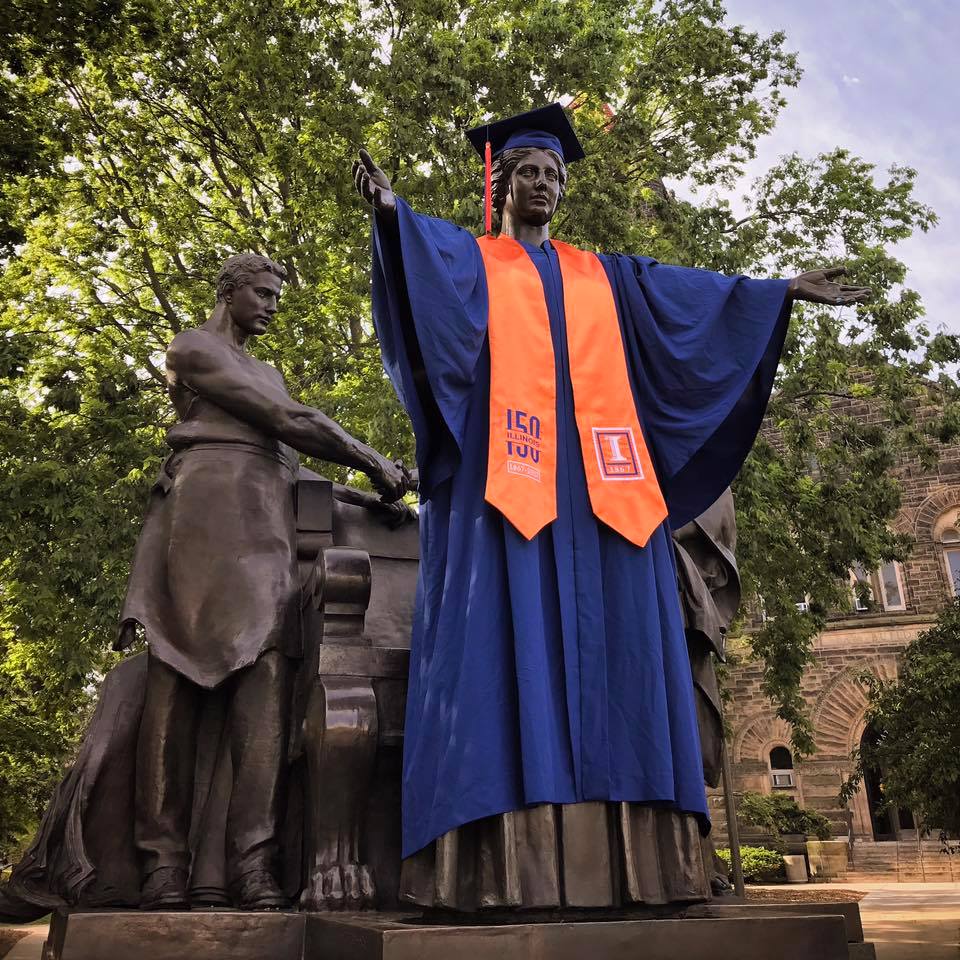New Media
The New Media program offers undergraduate-level study that leads to a BFA degree. Students and faculty work with sound, video, code, interactive media and web-based tools to create performances, exhibitions, client-driven applications, and projects in public space. Through research and teaching, the New Media program serves as Illinois' site for practice-based exploration and criticism of new technological forms of art, design, and communication. Artists and designers are constantly presented with new tools and platforms. Instead of blindly using every emerging technology, New Media practitioners sort through the opportunities to understand how they produce sensations and facilitate communication. What possibilities do these tools offer for perceiving the world and representing it to others? How are newer consumer and scientific technologies encouraging us to continue older forms of perception and communication, rather than developing new ones? Students’ work in the program utilizes new and old technologies and narratives. Through projects in various media, they acquire technical skills, practice vocabularies of critique and analysis, and become familiar with the historic and contemporary field of art and design. Initial courses introduce basic technological and conceptual approaches to digital imaging, interactive media, and time-based applications. Upper-level courses allow students to acquire and practice more specialized knowledge in these forms. Students work with faculty from within and without the New Media program to develop an individually-determined body of work—a portfolio that demonstrates their technical, conceptual and expressive abilities. New Media study can lead to a wide variety of post-educational pursuits, including art gallery practice, commercial design, non-profit or community media advocacy, or research in corporate and educational contexts. Research by faculty in Illinois' New Media program is representative of this breadth. Individual faculty experience includes work in screen-based and physical interactive media, performance, publication, curation, exhibition, and activism.
- ARTF 101—Contemporary Issues in Art
- ARTF 102—Observational Drawing
- ARTF 104—Expressive Drawing
- ARTF 106—Visualization Drawing
- ARTS 241—Image Practice
- ARTS 243—Time Arts I
- ARTS 244—Interaction I
- ARTH 110—Introduction to the History of Art and Visual Culture
Students should consult with an academic advisor regarding course selection prior to the advanced registration period.
New Media study can lead to a wide variety of post-educational pursuits, including art gallery practice, commercial design, non-profit or community media advocacy, or research in corporate and educational contexts.
- Ability to come up with unusual or clever ideas about a given topic
- Critical thinking skills in a technological environment
- Develops creative ways to solve a problem
- High levels of competence based on knowledge of the operation of different modes
- Highly developed design abilities to produce complex semiotic “texts”
- Knowledge of media production, communication, and dissemination techniques and methods
- Knowledge of the theory and techniques required to compose produce, and perform works of music and visual arts
- Proficiency for accuracy and detail
- Quickly learns and utilizes new technologies
- Sets of social skills and cultural competencies that surround technology
- Understand and explains complex concepts and ideas
- Works well under pressure
- Animator
- Art Director
- Camera Operator
- Cartoonist
- Color Expert
- Communication Equipment Mechanic
- Computer Artist
- Customer Service Representative
- Documentary Film Maker
- Film/Video Editor
- Graphic Designer
- Grip
- Media Buyer
- Media Production Specialist
- Motion Picture Projectionist
- Multimedia Designer
- Multimedia Director
- Music Director
- Online Content Developer
- Photo Journalist
- Photographer
- Product Tester
- Program Director
- Programmer Analyst
- Sound Engineer
- Sound Mixer
- Sound Recordist
- Stage Technician
- Supervising Film/Video Editor
- Technical Writer
- Television Technician
- Web Developer
- Web Graphics Designer
- Web Master
Some careers may require education beyond an undergraduate degree.
- Participating in undergraduate research
- Applying for a study abroad experience
- Utilizing resources of The Career Center
- Joining a Registered Student Organization (RSO) related to this major, such as:
- Krannert Center Student Association: promotes and celebrates the arts by providing volunteer opportunities and activities that unite those who appreciate the arts throughout the Krannert Center for the Performing Arts, the University of Illinois, and larger communities.
- Special Interest Group on Computer Graphics: focuses on the development of computer animation & visual effects, video games, graphics research, multimedia, and software relating to graphics.
There are several professional organizations dedicated to New Media. Their websites might be able to provide a glimpse in the world of New Media. One such organization is New Media Caucus of the College Art Association as well as non profit organization Rhizome.


